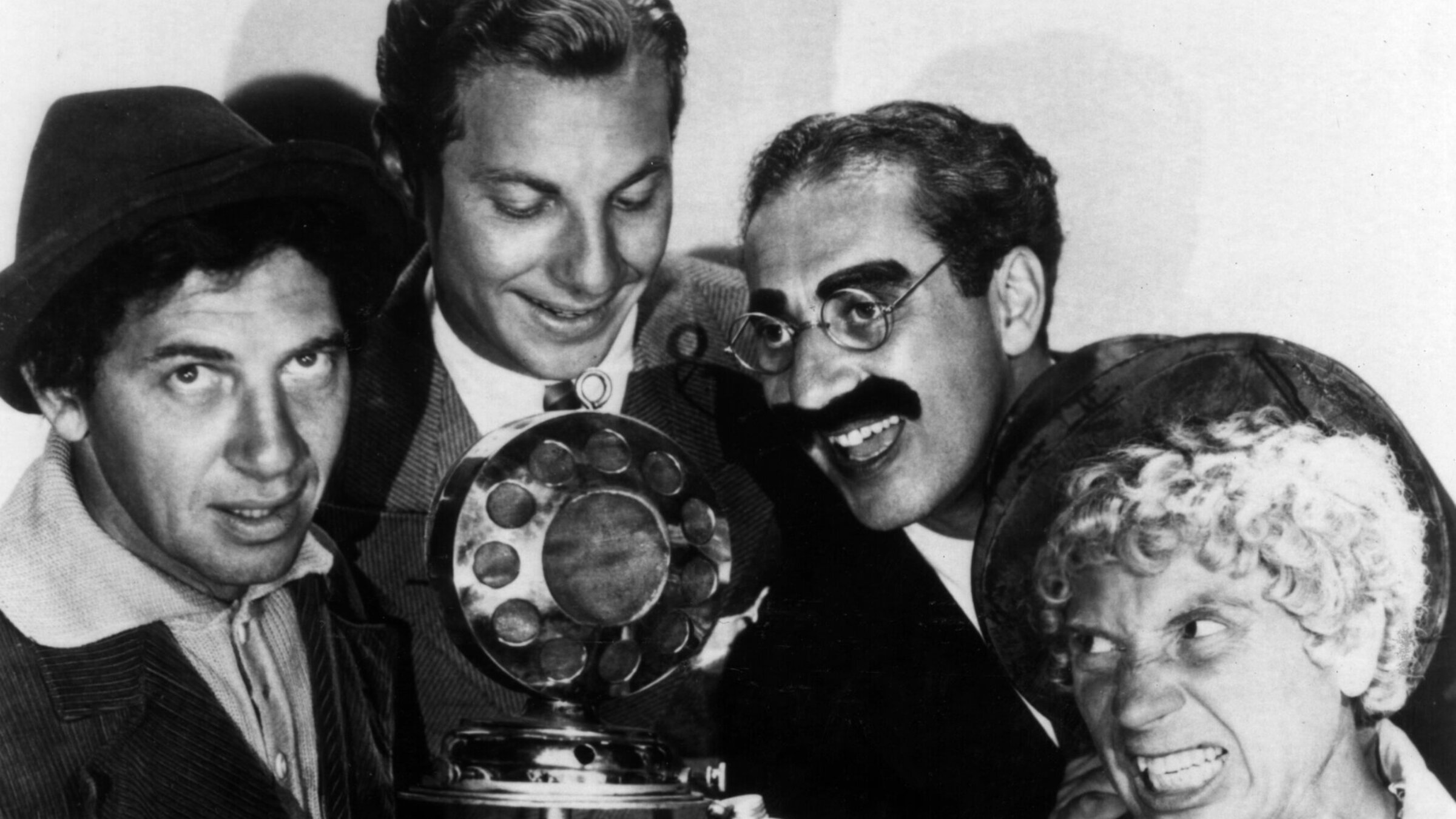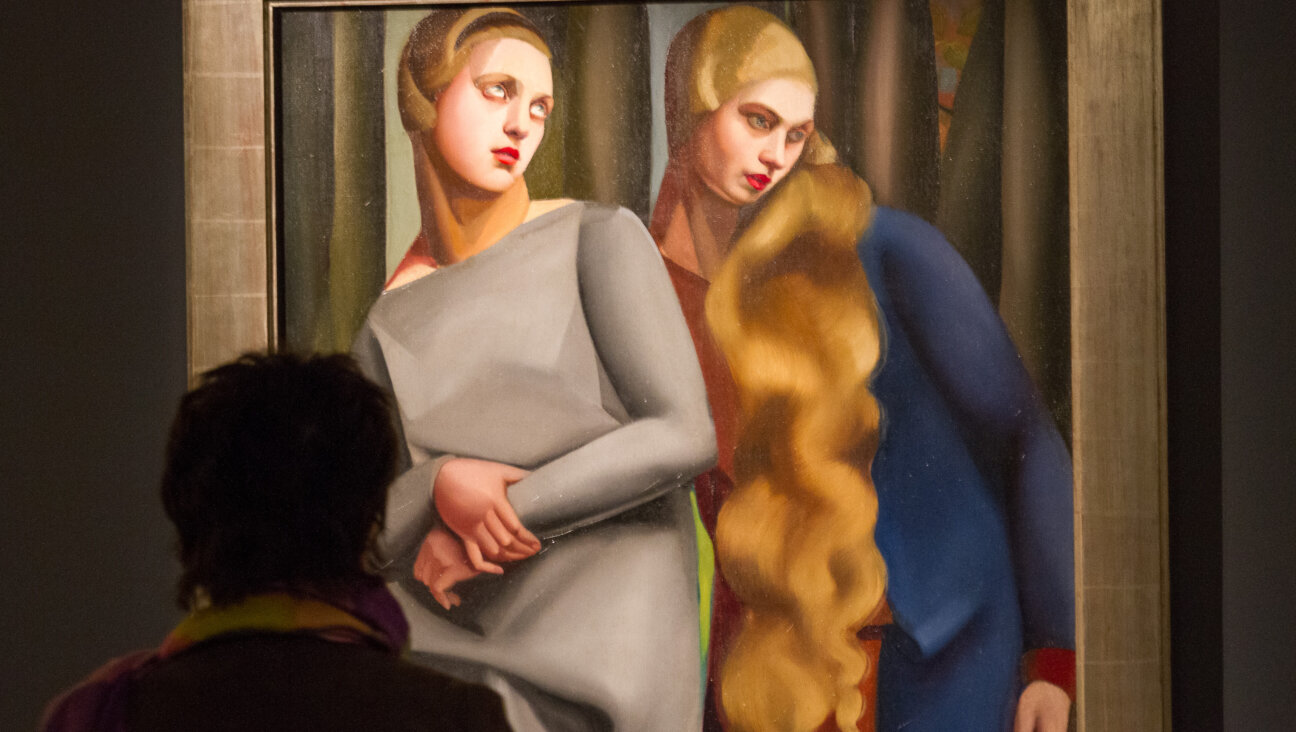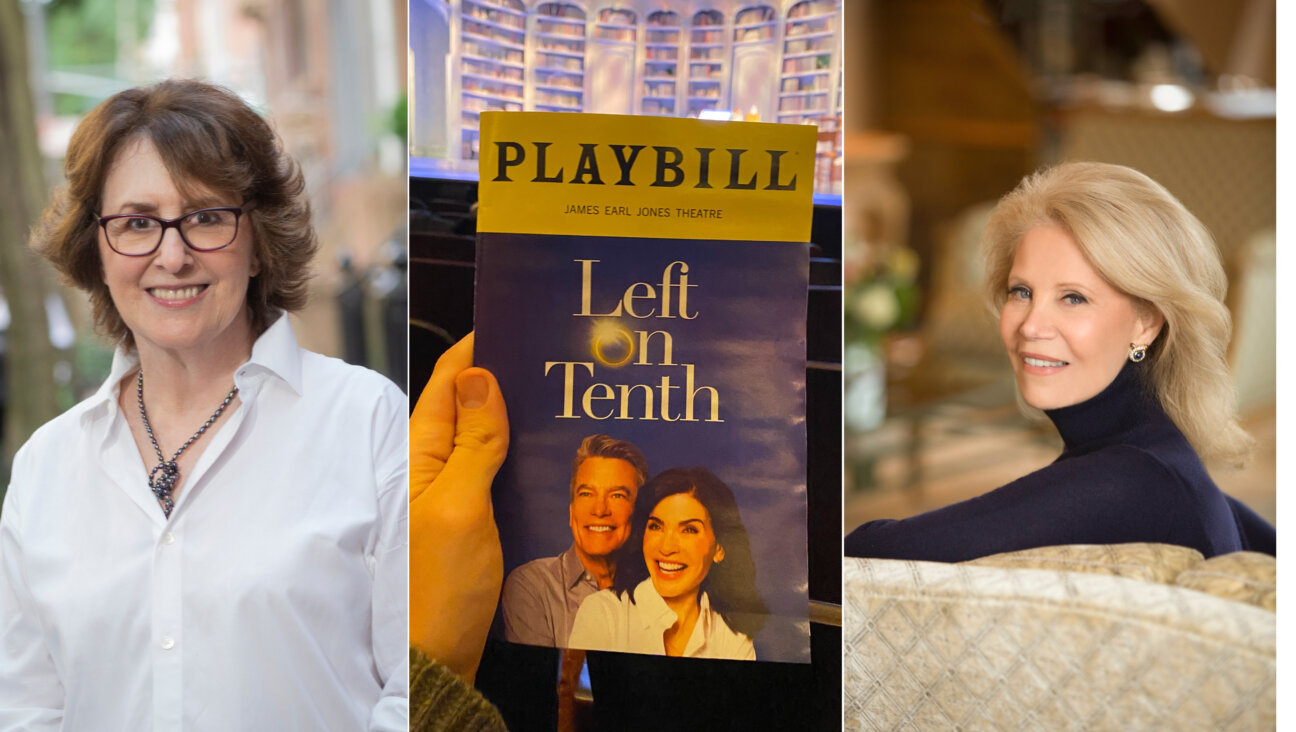The greatest (and also the worst) Marx Brothers movies ranked from 13-to-1
Some of the Marx Brothers movies were way ahead of their time — a few remain stuck in it

Marx Brothers, circa 1935. Photo by Getty Images
Among the many reasons I’m thankful to have been a kid in the 1970s is that my childhood coincided with a massive Marx Brothers revival. Between 1971 and 1978, I spent countless weekend afternoons and evenings in various revival houses and college auditoriums, hungrily absorbing every second as Groucho, Chico, Harpo and sometimes Zeppo inflicted their very specific brand of wayward comedic genius upon any “straights” who had the severe misfortune to cross their paths. Their gleeful absurdity and utter disrespect for authority imprinted on me from an early age, and I’ve always been grateful for that.
Marx Brothers films were my first real pop culture obsession (if you don’t count Sesame Street or Captain Kangaroo), and I watched them so many times in my youth — and again after college, when I worked at a record and video store that had most of their films available to rent — that at some point it just felt almost unnecessary to watch them again. But when I wound up going back to some of my favorites during the pandemic, I was surprised by how fresh many of their bits still felt, and how loudly they still made me laugh. So when my editor asked me to rank the Marx Brothers’ films, I was only too happy to give them all another look.
Perhaps unsurprisingly, their five films for Paramount Pictures, which presented the Marx Brothers at their most untamed — and which also featured the underrated Zeppo — still hold up extremely well, with the earliest of them let down mostly by their technological limitations and their inherent staginess. As for the others, well … some still reliably deliver the goods, some are better than I’d remembered, some are worth watching with a finger on the remote fast-forward, and there are one or two that I definitely never need to watch again.
Here then, ranked in order from worst to first, are the Marx Brothers’ 13 films.
13) Love Happy
Strictly for the hardcore Marx-o-phile, 1949’s Love Happy just barely qualifies as a Marx Brothers film. Though the David Miller-directed, United Artists-released film was originally conceived as a solo vehicle for Harpo, the producers couldn’t get sufficient financial backing to without casting Groucho and Chico, as well. A mildly incoherent stolen-diamonds caper interrupted by several musical numbers (including two apiece for Harpo and Chico, respectively), the film never actually features the brothers together in any of the scenes; it’s best remembered today for Marilyn Monroe’s brief appearance as a client of private investigator Sam Grunion, played by a greasepaint-free Groucho.
12) Room Service
The Marx Brothers’ lone film for RKO, this 1938 film (directed by William A. Seiter and James Anderson) was based on a 1937 play of the same name that wasn’t written with them in mind, and you can tell. Though it’s always a pleasure to see Groucho, Chico and Harpo together onscreen, the film’s plot — a broke theatrical producer (played by Groucho) tries to keep the cast and crew of his latest play housed in a hotel until he can find a backer to cover their accumulated bills — is far from gripping stuff, and the Brothers spend more time standing around awkwardly than causing comedic chaos. Blame brother Zeppo, who’d retired from the screen after 1933’s Duck Soup and was now representing his older siblings as their agent.
11) The Big Store
The last of the Marx Brothers’ MGM films — it was announced that they’d be retiring as a team following its release — 1941’s Charles Reisner-directed The Big Store is also arguably the worst of the bunch. The complicated (yet not at all compelling) plot revolves around a singer (played by Tony Martin) who wants to turn the department store he’s inherited into a music conservatory; unfortunately, the present store manager would rather kill him than see that happen. The singer’s aunt (Margaret Dumont) hires a private detective (Groucho) to keep him safe, and hilarity only intermittently ensues. Weighed down by lavish musical numbers and a climactic slapstick rollerskating chase that would have landed better if not for the obvious stunt doubles, the film is barely saved by a couple of great scenes with Dumont and Groucho, and one of my all-time favorite Groucho jokes (which occurs when a female customer spies him lying on a bed display):
Woman: Can you tell me the price of this bed?
Groucho: $8,000.
Woman: Why, that’s preposterous! I can get the same bed anywhere in town for $25.
Groucho: Yes, but not with me in it!
10) At the Circus and Go West (tie)
It’s difficult to say which of these two MGM productions is better (or worse) than the other. 1939’s Edward Buzzell-directed At The Circus features Margaret Dumont, as well as Groucho’s famous performance of Harold Arlen and Yip Harburg’s “Lydia the Tattooed Lady,” but the Brothers’ big top antics are too often sidelined by a maudlin love story between circus owner Jeff Wilson and horse performer Julie Randall and their nauseating duets of Arlen and Harburg’s “Two Blind Loves.” 1940’s Go West (also directed by Buzzell) sorely lacks Dumont and features some deeply “of its time” (i.e. racist) depictions of Native Americans, but is worth watching just for its truly brilliant runaway train scene — and to see Chico, whose humorously venal tendencies were generally curtailed during the MGM years, surreptitiously pocket the “golden spike” at the film’s end.
8) A Night in Casablanca
After a five-year hiatus from the silver screen, Groucho, Chico and Harpo returned together for this amusing United Artists romp involving a murderous Nazi who has hidden stolen art treasures in a posh hotel managed by Groucho. While the film might have been even funnier as the Casablanca spoof it was originally intended to be (with Groucho playing a character named Humphrey Bogus), the Archie Mayo-directed A Night in Casablanca is actually far more watchable than its underrated reputation — and its late position in the Marx Brothers filmography — would lead you to believe. The pacing is snappy, the script (by Joseph Fields, Roland Kibbe and Frank Tashlin) is fairly sharp, with several memorably hilarious scenes involving the Brothers (including one where Chico and Harpo outwit the villainous Sig Ruman by deftly shuttling between his closet and steamer trunk). The chemistry between Groucho and femme fatale Lisette Verea is also surprisingly sparky; even though her character is supposed to lead him to his doom, you can tell that she’s genuinely jazzed by the opportunity to riff with him.
7) The Cocoanuts
Okay, now we’re getting into classic Marx Brothers territory. Based on George S. Kaufman 1925 Broadway musical which featured Groucho, Harpo, Chico and Zeppo, their first film for Paramount Pictures (directed by Robert Florey and Joseph Santley) takes place in a resort hotel during the Florida land boom of the 1920s, but the plot and setting are basically a flimsy pretext to bring the Brothers’ well-honed stage gags to the screen. The play’s lavish musical numbers came with it as well, of course, but they’re mostly good fun. The film’s chief drawback is that the limitations of early “talkies” are readily apparent — the static camera work is largely the result of the cameramen being enclosed in soundproof, glassed-in booths to prevent their camera’s noisy motors from being picked up by the primitive recording equipment. Even so, the land auction scene (in which Chico repeatedly outbids himself after being hired by Groucho to serve as a shill), is just one of the film’s many moments of Marxian humor that still tickle the funny bone nearly a hundred years later.
6) Animal Crackers
Though based on another Marx Brothers stage vehicle (this one by George S. Kaufman and Morrie Ryskind), and once again perhaps overly heavy on the musical numbers, 1930’s Victor Heerman-directed Animal Crackers gets the nod over The Cocoanuts due to Groucho’s classic “Hooray for Captain Spaulding/Hello I Must Be Going” musical number, the surreal running joke which finds him spoofing Eugene O’Neill’s Strange Interlude, and generally being several leagues ahead of its predecessor in terms of production values. And those who think of Zeppo as little more than a less-talented straight man for his older brothers would do well to watch the scene in which Groucho dictates a letter to his secretary; Zeppo’s subtle sass-backs, including the line, “You said a lot of things I didn’t think were very important, so I just omitted them,” reveal a sly comic timing that clearly marks him as a full-blooded Marx.
5) A Day at the Races
The second of their two classic films for MGM (Irving Thalberg died while the film was in production, leaving the Marx Brothers without a champion at the studio), 1937’s Sam Wood-directed A Day at the Races was also the Marx Brothers’ highest-grossing release of their career. The musical sequence in which a bunch of poor Blacks mistake Harpo for the Angel Gabriel is tough to sit through — especially when the Brothers try to evade the authorities by “blending in” with the use of blackface — but otherwise, A Day at the Races is mostly Marxian gold. For once, the film’s love story (in which Allan Jones buys a racehorse to help his girlfriend Maureen O’Sullivan fend off foreclosure on her sanitorium) feels less like a time-eating distraction than an organic part of the plot, especially once O’Sullivan hires horse doctor Groucho to tend to her best customer, the hypochondriacal dowager played by Margaret Dumont. The dialogue (by Robert Pirosh, George Seaton and George Oppenheimer) is fast, furious and hilarious, and the “Tutsi Fruitsy Ice Cream” scene — wherein Chico methodically scams Groucho into paying for one useless horse guide after another — ranks high in the pantheon of legendary Marx Brothers routines.
4) A Night at the Opera
I’d long considered the Marx Brothers’ first film for MGM (and their first without Zeppo), to be among their top two cinematic efforts. But a recent rewatch of 1935’s A Night at the Opera brought home to me how much of their anarchic edge had been smoothed off for this film, and that far too much script space is given over to a not-particularly-compelling romance between tenor Allan Jones and soprano Kitty Carlisle. Still, it’s a great one, with Sam Wood’s snappy direction and George S. Kaufman and Morrie Ryskind’s priceless dialogue managing to provoke plenty of primo Marx madness. Ditto for the legendary stateroom scene (penned by vaudeville vet Al Boasberg), in which Groucho plans a romantic rendezvous with Margaret Dumont in his third-class state room, but is foiled by stowaways Chico and Harpo, who refuse to leave the tiny cabin without being fed first. Their food order — complete with Harpo’s honking plea for additional hard-boiled eggs — and the crush of people that ensues may be the ultimate example of the Marx Brothers’ talent for blending cerebral wit with physical comedy and a deeply ingrained sense of absurdity.
3) Horse Feathers
Decades ahead of its time with its skewering of universities where the football program takes priority over education (or anything else), 1932’s Norman Z. McLeod-directed Horse Feathers starts off ridiculously enough, with Groucho being sworn in as the new president of Huxely College and ends with Harpo leading Huxley’s team to gridiron glory on a horse-drawn garbage wagon. In between, the brothers romance “the college widow” played by the gorgeous Thelma Todd, crash a biology lesson, try to kidnap professional wringers who are playing for the opposing team, sing Bert Kalmar and Harry Ruby’s “Everyone Says I Love You,” and (this still being the Prohibition an era) smuggle bootleg liquor. The “swordfish” scene, wherein Chico won’t let Groucho into a speakeasy unless he says the proper password but winds up locking himself out of the joint, is still absolute comedy gold — as is Harpo’s wordless response, which is to pull a large fish out of his coat and stab it with a sword.
2) Monkey Business
The most unabashedly feral of all the Marx Brothers films, 1931’s Monkey Business — directed by Norman Z. McLeod and written by S.J. Perelman and Will B. Jonshtone, with assists from Arthur Sheekman, Al Sheam and Nat Perrin — doesn’t bother with any character names or backstory for the brothers. They’re simply “the stowaways” crossing the Atlantic on an ocean liner, and they’re causing chaos from the moment they’re introduced, singing barbershop harmony in the ship’s hold while hiding in kippered herring barrels. The film’s anti-anti-immigration subtext still packs a subversive punch — that is, if you’re not too busy laughing hysterically at the four of them trying to outwit immigration officials by all pretending to be Maurice Chevalier to notice it. Only the lack of Margaret Dumont and an ending that feels like the writers had completely given up on getting this bucking bronco into the barn keep it from being the greatest Marx Brothers film of all time. That honor goes to…
1) Duck Soup
The darkest of all Marx Brothers films, 1933’s Duck Soup is also their most brilliant and hilarious, and has been widely cited as an influence on everyone from the Beatles to Woody Allen and Sacha Baron Cohen. Critics and the audiences of the time were less sure about it, however, recoiling from a script (penned by Bert Kalmar, Harry Ruby, Arthur Sheekman and Nat Perrin) that was absolutely drenched in post-WWI cynicism about nationalism, war, and the toll those things inflict upon humanity. Of course, that same cynicism actually makes the Leo McCarey-directed film (their last for Paramount) feel pretty timeless today, and Duck Soup’s almost non-stop barrage of devastating one-liners, insults and absurd physical gags — including a running joke about a motorcycle with a detachable sidecar, and Groucho and Harpo’s immortal “mirror scene” — still hold up pretty damn well, too. Topping it all off is the movie’s climactic battle scene, in which Groucho inadvertently steers the army of Fredonia to victory over Sylvania while donning a different uniform (everything from a Confederate Civil War general’s get-up to a Boy Scout scoutmaster’s outfit) in every shot, and then leads them in pelting an ecstatically patriotic Margaret Dumont with fruit. Hail to Fredonia, land of the free!






















